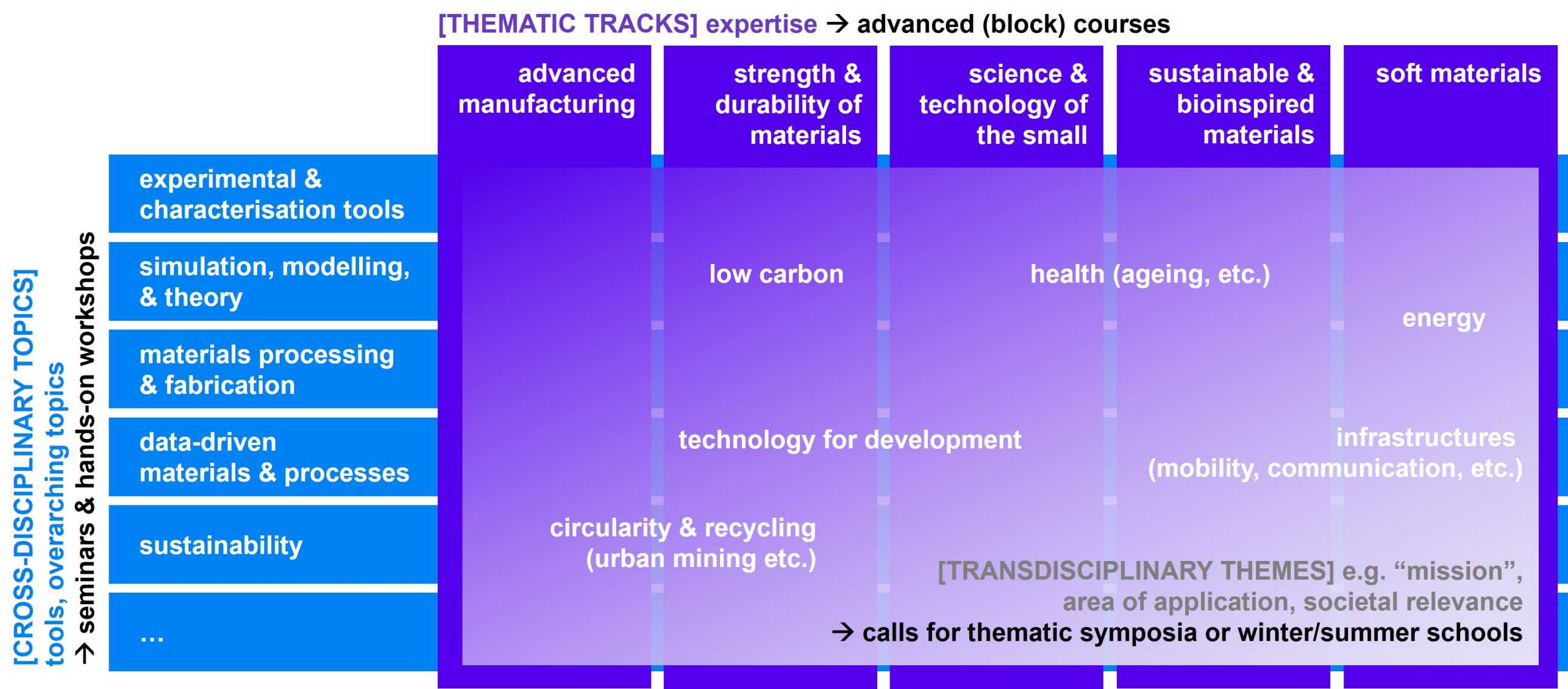Study Programme
At the MaP Doctoral School, doctoral students gain cutting-edge skills and cross-disciplinary training to thrive in modern research. They join vibrant research communities in materials, processes, and manufacturing technologies, with plenty of support to grow and succeed.
Future-ready graduates develop strong expertise in their field, along with cross- and transdisciplinary skills. They also gain transferable abilities that help them create impact beyond their own scientific discipline, contributing to society as a whole.
The MaP Doctoral School organises its courses and activities using a matrix structure. Thematic tracks are arranged vertically, while cross-disciplinary topics run horizontally to connect and enrich these themes. In addition, there is a focus on transdisciplinary learning and the development of personal and transferable skills, such as research ethics, scientific practice, and science communication.
At the heart of it all is the motto of the MaP Doctoral School — “Connecting Doctoral Students.” While all our events include a networking element, some are specifically designed to foster new connections across research groups and departments.
Explore our offerings by browsing the menu above.

Course Recommendations
The table below gives you an overview on keywords you could use when searching for courses that are offered by other entities at ETH Zurich.
Instructions:
- Open the current course catalogue
- Input a suitable keyword in the field "Catalogue data" (second row from the bottom)
- Press "Search"
Questions? Please send us an .
